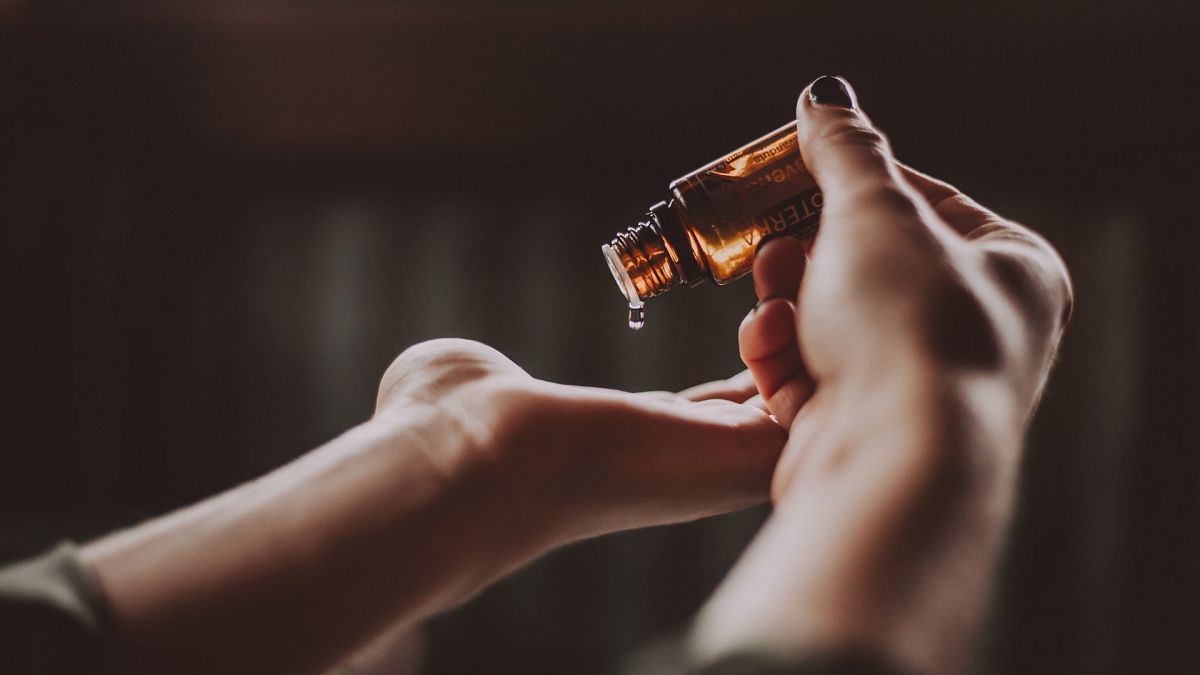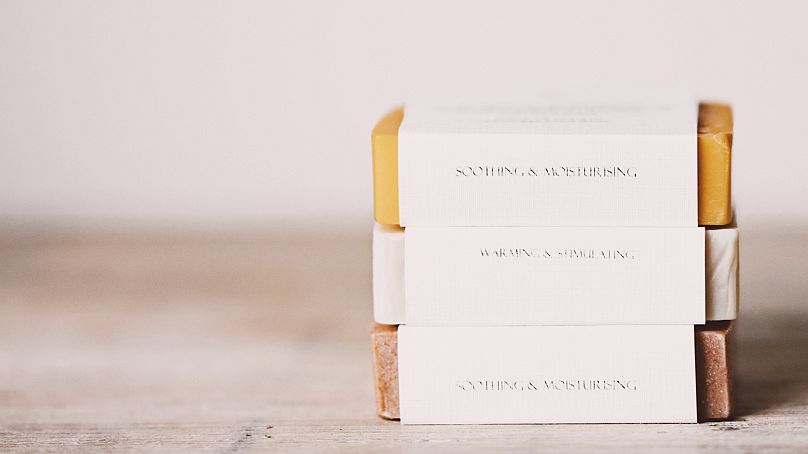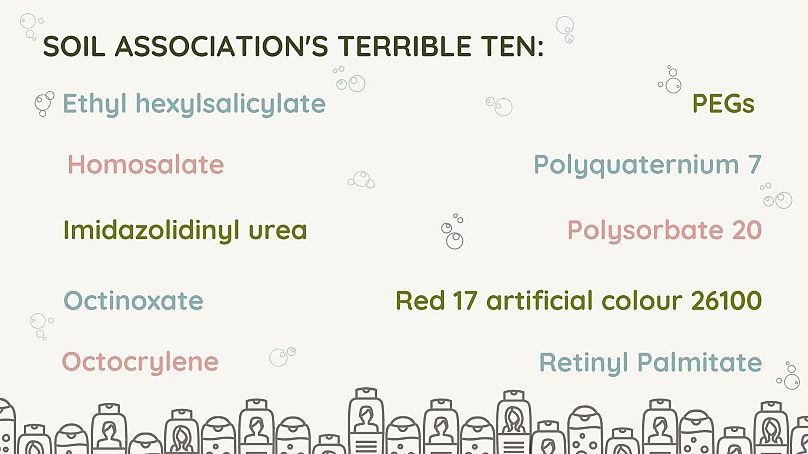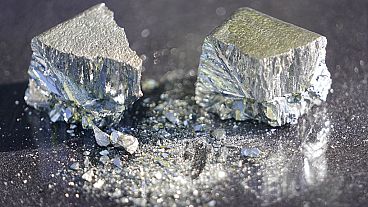Beauty brands might not be revealing the whole truth about what's really in your organic skincare.
Clean, green products promising “non-toxic” ingredients free from “chemicals” are all over the place right now. Bombarding us with claims that our current skincare is no good, these trending beauty essentials often exploit our belief that natural always means better. Whilst terms like “safe” and “chemical-free” don’t really mean anything concrete, there are more clear expectations from organic products. Expectations, it turns out, that might not always be being met by the ingredients in cosmetics labelled this way.
As we look to make sustainable switches, we are also becoming more concerned about the impact that those ingredients could have on the environment. In the UK alone, sales of organic and natural beauty products grew by nearly a quarter in 2019. We’re far more informed about sustainability than we used to be and it’s pushing us ever further towards conscious consumerism.
Research shows that we are committed to making better choices. A report by UK certification body, Soil Association Certification, found that 87 percent of the people asked were passionate about supporting environmental initiatives. Nearly four out of five people also said that they would be more likely to buy a product if it said it was organic with a vast majority believing that switching to cosmetics labelled this way was a positive choice.
Does organic always mean healthy and sustainable?
Choosing things labelled as organic might not always mean that your beauty purchases live up to your desire to do good and feel good. Unlike organic food, cosmetics don’t have to be independently certified to be labelled as such. That means products might actually contain as little as one percent of organic ingredients. What makes up the rest could be practically anything including chemicals that have the potential to harm your health. Common ingredients like parabens, phthalates and irritants, might make up the other 99 percent whilst still masquerading as ‘organic’.
With the ability to attach a hefty price tag to these supposedly “clean” products, it’s unsurprising that even big brands jump on the bandwagon of misleading labels. Riding the sustainability wave, a Soil Association investigation claimed that company’s like Korres, Rituals, and Dr Organic were labelling products as organic when they sometimes only contained a single ingredient that actually was.
The possibility that your skincare could contain harmful ingredients is understandably worrying but there is another side to this. Ingredients used in addition to the minimal organic content could be coming from highly unsustainable sources. There is no legislation to stop a manufacturer from using the expectations of an organic label to mislead customers into buying a product full of ingredients distilled from fossil fuels or harvested in a way that damages the environment. Even when trying to make sustainable and ethical choices, you might be unintentionally encouraging practices that are bad for the planet.
Making sure what you buy really is organic
Founded by the Soil Association and other organic industry leaders in 2010, the COSMOS-standard provides one way to ensure that what you are buying meets expectations of “doing good”. Their 2020 Organic Market Report found that over half of people are starting to realise that organic products might not be everything they promise and so are actively looking for logos to help them purchase responsibly.
Clare McDermott, Business Development Director at Soil Association Certification reveals that, according to their Campaign for Clarity, three-quarters of people felt misled by natural and organic claims on packaging. “We think companies should come clean about the claims they make,” she says, “if people want to know that what they are buying is truly organic, they should look for certified organic products with the Soil Association COSMOS logo.”
To use this logo, she explains, companies must meet stringent standards which exclude all kinds of things from genetically modified ingredients to those grown with pesticides. There are also sustainability requirements that require responsible sourcing and rules about the amount and type of plastic used. “To ensure products are produced in the most sustainable and environmentally sound way, companies also supply us with energy and water usage information and waste management plans,” she adds.
So, in addition to making sure that 95 percent of the plant-based ingredients harvested or farmed come from certified organic sources, there are also environmental considerations involved in achieving the COSMOS-standard. It means that for these products at least, organic does also mean sustainable.
How to know if your beauty products are green
A lack of certification doesn’t always mean that a product is unhealthy or unsustainable, it's a lot more complex than that. Receiving an approved logo can be an expensive process which can prevent smaller brands, like Conscious House London, from being able to put an official mark on their products. Founder Rebecca Dallimore has a background in environmental science and commends the Soil Association for their rigorous commitment to transparency, but the process is just too expensive. “Small businesses like us, who are fully committed to providing a sustainable product from ingredients to packaging, yet who are often small in size, new to the market and/or self-funded just can’t afford to apply for certifications,” she explains. Independently verifying the whole supply chain is not a cheap process.
“I think the standards we hold for organic products should be something that we aim for with every product,” she says, “and whilst organic vs. non-organic is definitely more environmentally friendly, it really depends on the product type.”
Other brands, like Beauty Kitchen, also point out that organic ingredients aren’t always necessarily more environmentally friendly. Their “Seahorse Plankton+” range would endanger seahorse populations if harvested naturally but the photobioreactor (a giant greenhouse to you and me) they use as an alternative would never meet the criteria to be certified organic. Beyond preventing harm to marine life, the process also creates energy as a byproduct which the company then sells back to the electricity grid. “Our microalgae can never be classed as an organic ingredient due to the way it’s grown,” explains founder Jo Chidley, “however it is the most sustainable way to make these ingredients.”
Ingredients aren’t the end of it, she says, and every process must be considered individually. Evolving technological advances allow practices that in the past would have spelt disaster for biodiversity to have minimal ecological consequences. They may not be able to be considered as organic, but developments like the milking of plants for their extracts instead of uprooting them may offer even more sustainable practices than organic certifications currently recognise.





